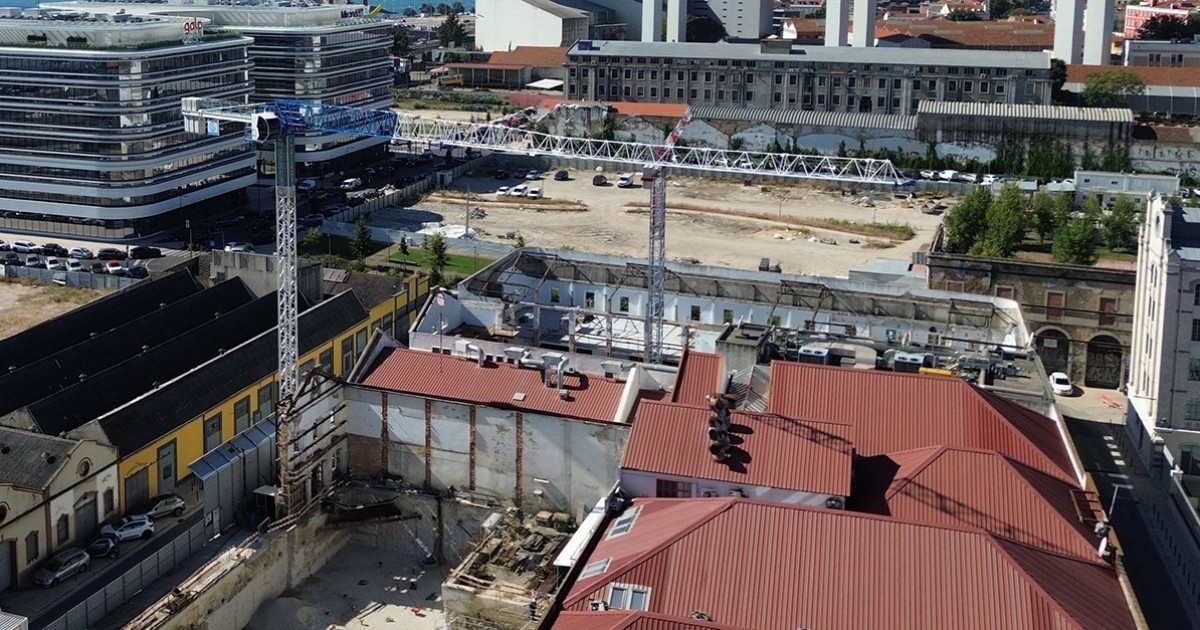Portugal Announces 6% VAT for New Construction to Boost Housing Supply in Lisbon and Porto
In a landmark decision with significant implications for Portugal's real estate sector, the government has formally announced its plan to drastically cut the Value Added Tax (VAT) on new housing construction from the standard 23% to a reduced rate of 6%. Minister of Infrastructure and Housing,
Miguel Pinto Luz, confirmed that the administration is targeting the first quarter of 2026 for implementation. This strategic fiscal reform is designed to directly confront the nation's housing supply crisis by incentivizing development, with a clear focus on easing pressure in the critical metropolitan markets of Lisbon and Porto.Key Takeaways
- ✓ Major Fiscal Stimulus: The Portuguese government will propose a VAT reduction to 6% for new residential construction projects.
- ✓ Targeted Implementation: The measure is expected to be legally enacted by Q1 2026, applying to projects submitted for licensing after the law takes effect.
- ✓ Investor-Relevant Caps: The reduced rate applies to homes for sale up to €648,000 and new rental properties with monthly leases up to €2,300, targeting the mid- to upper-mid market.
- ✓ Strategic Goal: The policy is a core component of the 'Build Portugal' program, aimed at increasing housing stock and mitigating affordability issues in high-demand urban centers.
This pivotal announcement signals a robust governmental response to the long-standing challenge of housing affordability in Portugal. The measure is a central pillar of the comprehensive
"Construir Portugal" (Build Portugal) initiative, which is further supported by the country's Recovery and Resilience Plan (PRR). By substantially lowering the tax burden on development, the policy aims to de-risk projects and stimulate a new cycle of construction, thereby expanding the available housing inventory. The effects of this policy will be closely watched by stakeholders across the real estate value chain, from land acquisition specialists to end-buyers.The legislation is carefully structured to channel investment towards the most needed segments of the market. The price ceiling of €648,000 for sales and a rental cap of €2,300 per month ensures that the benefits are directed at properties accessible to families and professionals, rather than exclusively fueling the luxury market. This targeted approach is particularly relevant for investors analyzing opportunities in diverse neighborhoods across the Lisbon metropolitan area, a topic explored in our detailed Lisbon neighborhoods guide.
Market Implications for Investors
For real estate developers and international investors, the 17-percentage-point reduction in VAT is a game-changing variable that fundamentally alters project feasibility calculations. This tax relief directly translates into lower upfront costs, which can either be passed on to buyers to enhance affordability or reinvested to improve project quality and returns. The policy is expected to invigorate the off-plan property market, as developers will have greater confidence to launch new projects knowing the tax framework will be more favorable.
However, a degree of strategic patience is warranted. Finance Minister
Joaquim Miranda Sarmento has prudently managed expectations, forecasting that the most significant market impact—a tangible increase in completed housing units—will likely materialize from 2027 onwards. This projected delay accounts for the typical lifecycle of property development, which includes project design, navigating municipal approvals, and the construction phase itself. Investors should therefore view this as a medium-term opportunity, aligning their strategies with this official timeline.The government's commitment to maintain this reduced rate until 2029 provides a stable, predictable planning horizon, which is a critical factor for large-scale investment decisions. This long-term vision helps mitigate regulatory risk and should encourage more substantial and ambitious residential projects to move forward from the drawing board to reality.
'Build Portugal' Program Background
The VAT reduction is not an isolated measure but a key component of the government's multi-faceted 'Build Portugal' strategy. This program aims to dismantle the bureaucratic and financial barriers that have historically constrained housing development in the country. By combining fiscal incentives with regulatory simplification, the government seeks to create a more dynamic and responsive housing market. The initiative acknowledges that a sustainable solution to the housing crisis requires a coordinated effort between public policy and private sector investment.
Prime Minister
Luís Montenegro defended the rental cap of €2,300, acknowledging it may seem high but framing it as a necessary maximum to stimulate construction in high-cost urban areas. This pragmatism reflects an understanding that to attract private capital, investment conditions must be viable. The policy's success will ultimately depend on its ability to spur development that caters to a spectrum of housing needs, from affordable to mid-range properties.Need Expert Guidance?
Get personalized insights from verified real estate professionals, lawyers, architects, and more.
Lisbon & Porto Construction Market Context
The real estate markets in Lisbon and Porto have been defined by a persistent supply-demand imbalance. Strong economic growth, coupled with their rising status as global business and tourism hubs, has attracted a significant influx of residents and investors, placing immense pressure on the existing housing stock. This VAT reduction is a direct attempt to address the supply side of the equation.
Several interconnected factors will shape the outcome of this policy:
- Licensing Efficiency: The chronic delays in municipal licensing are a well-known bottleneck. The success of the VAT cut is intrinsically linked to the government's parallel efforts to digitize and streamline these approval processes.
- Construction Sector Capacity: The ability of the construction industry to scale up will be tested. Access to skilled labor and the management of volatile material costs are significant operational considerations for constructors.
- Financing Environment: While the policy reduces project costs, access to development finance and prevailing interest rates will remain crucial determinants of project viability.
- Market Absorption: The rate at which the market can absorb new housing units will depend on continued economic stability and the purchasing power of domestic and international buyers.
The government's initiative, while promising, must operate within this complex ecosystem. Its impact will be magnified if accompanied by progress in these other critical areas.
Investment Considerations
This policy announcement creates a clear window of opportunity for savvy investors. The defined timeline—implementation by Q1 2026 and duration until 2029—provides a strategic framework for planning new acquisitions and development ventures. The significant reduction in tax liability enhances the potential for attractive returns on investment, particularly for build-to-sell and build-to-rent projects that align with the specified price caps.
Foreign investors should begin identifying potential development sites and partners immediately. Due diligence on land acquisition, zoning regulations, and municipal planning is more critical than ever to be well-positioned when the law takes effect. Exploring the potential returns can be modeled using tools like the property investment analyzer, which can help quantify the financial benefits of the reduced VAT.
Future Outlook
The proposed 6% VAT rate is arguably one of the most significant policy interventions in Portugal's real estate market in the last decade. It signals a clear political will to tackle the housing shortage head-on by stimulating private sector development. If successfully implemented and paired with administrative reforms, this measure has the potential to meaningfully increase the housing supply in key urban areas, leading to a more balanced and sustainable market in the long term.
This proactive stance enhances Portugal's reputation as a transparent and increasingly favorable environment for real estate investment. The coming months will be crucial as the legislative details are finalized, and developers and investors prepare to capitalize on this new fiscal landscape. For expert guidance on structuring investments to align with this upcoming tax change, contact realestate-lisbon.com.






